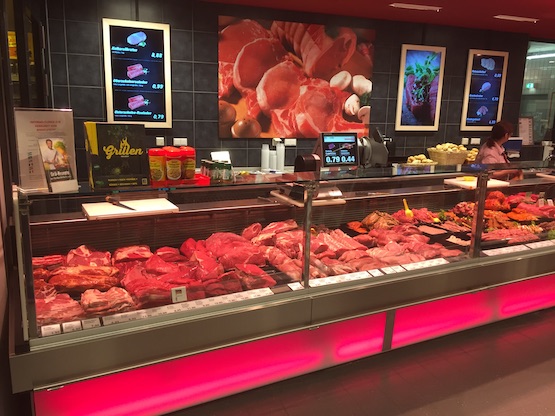Extension of origin labeling to unpackaged meat

In the future, unpackaged meat from pork, sheep, goat and poultry must have a label of origin. The Federal Cabinet today approved a corresponding draft regulation by the Federal Minister of Food and Agriculture, Cem Özdemir. From the beginning of 2024, consumers will be informed about the origin of every piece of fresh, chilled and frozen meat from these animals. Previously, this was only mandatory for pre-packaged meat. Labeling of origin was already mandatory for unpackaged beef. The ordinance comes into force six months after its promulgation in the Law Gazette.
Federal Minister Özdemir says: "When consumers buy meat, they want to know how the animal was kept and where it comes from. We have now made both possible - and in doing so we are responding to a long-standing demand from farmers and consumers. Animal husbandry - and labeling of origin are a pair of siblings for me and belong together. They are two important steps on our way to making animal husbandry in Germany future-proof. They make the achievements of our farmers reliably visible. Customers can thus make a conscious purchasing decision and themselves actively opt for more animal welfare, regional added value and high environmental standards.
Parallel to the animal husbandry labeling, we also want to extend the designation of origin to out-of-home catering in the next step. Unfortunately, contrary to what it announced, the Commission has still not submitted a proposal for a broad regulation. Other member states have already made national regulations. Our farmers - especially those with small and medium-sized farms - need the opportunity to survive in the market. 'Made in Germany' is also a quality feature for meat that is recognized by consumers: it stands for animal welfare, fair wages and the protection of our natural resources."
The federal government had already approved the draft regulation in May. The Federal Council approved this second amending ordinance of the Food Information Implementation Ordinance on July 7, with the stipulation that if meat is mainly sold from the same origin, labeling with a general and clearly visible notice in the shop is also considered sufficient. This adjustment has now been adopted with the approval of the draft in the cabinet.
Also at the beginning of July, the Federal Council cleared the way for the law for animal husbandry labeling presented by the Federal Minister. The label includes five types of husbandry: "Barn", "Barn+place", "Fresh-air barn", "Run/pasture" and "Organic". The law initially regulates the fattening of pigs and is to be quickly extended to other animal species, life phases and areas in the value chain, for example in gastronomy and processed products.
background information
Statistically, Germany's livestock farmers produce more meat than is eaten in Germany. The so-called degree of self-sufficiency was 2022 percent for all types of meat in 116,0. For pork, the percentage of meat most frequently consumed in Germany, this was 125,8 percent. In 2022, almost 2,9 million tons of meat were exported from Germany, of which almost 1,5 million tons were pork. At the same time, a good 2,0 million tons of meat were imported, including 0,7 million tons of pork.
In Germany, less and less meat is being eaten: in 2022, per capita consumption was at a historic low of 52,0 kilograms since measurements began in 1989.
